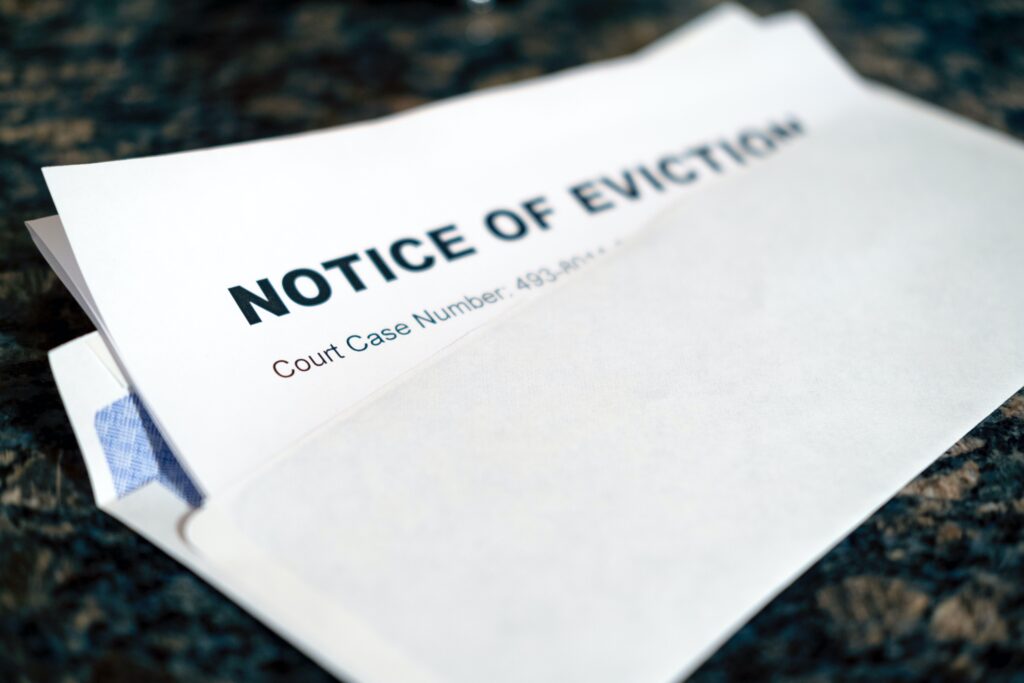Missing mortgage payments can be an incredibly stressful situation. As bills pile up and lenders begin issuing letters, the threat of losing your home looms distressingly close. While repossession may feel inevitable, there is still often time to take action before the bank forcibly seizes your property.
With knowledge of what to expect and proactive measures, it’s possible to get back on track with payments or arrange alternative solutions, even late in arrears. Staying informed is key, and this guide aims to empower you and provide hope through this difficult period.
What happens if I miss a mortgage payment?
If you miss a mortgage payment, it’s not necessarily the end of the world. While it varies from lender to lender, most allow up to three missed payments (three months’ worth) before they’ll even consider repossession.
So if you miss one or two, the mortgage provider will likely be on your case. It doesn’t mean you’ll lose your home, however. And if you did miss three payments, repossession is usually a lender’s last resort, with the aim to put a repayment plan in place.
However, missing mortgage repayments may negatively impact your credit score which would likely affect your ability to borrow money from lenders in the future. So, if possible, try to avoid missing your mortgage payments.
When will the bank start repossession?
Again, banks typically allow homeowners to miss a few monthly payments before taking action. However, most lenders will initiate repossession protocols after around three months of non-payment.
You will likely first receive written notices urging you to repay the debt or make alternate arrangements. If unresolved, by month three, the bank may issue an official repossession order and court claim.
Though the process differs slightly between lenders, once a judgement for possession has been granted by month six, expect a court bailiff to contact you shortly regarding vacating the property. At nine months of arrears, your lender can apply for a repossession warrant and forcibly remove you.
What can I do if I can’t make the repayments?
Missing one or two payments may be recoverable, but if you realistically know you can’t afford the upcoming repayments, immediate action is crucial. Here’s some options:
Payment holiday
Start by contacting your lender to explain your situation. They may allow a short repayment holiday or let you temporarily lower or pause payments. Be aware that while reduced payments help in the short term, you may end up paying more overall. This is because with reduced payments, you may be paying on an interest only basis. More on interest only below.
Normally, to qualify for a payment holiday, you will need to have made mortgage overpayments in the past, and/or you’ll need to show evidence of a change in circumstances, such as being made redundant. Mortgage holidays are available at the discretion of your lender. If you are in arrears already, you likely will not be granted a mortgage holiday.
Interest-only mortgage
If temporarily unable to cover full capital-and-interest payments, ask your lender about switching part or all of your mortgage to an interest-only basis. Lowering payments so you only pay interest each month could lead to reducing immediate financial strain. However, you still owe the original loan amount and will need to pay it back at some stage. Temporary interest only mortgages often result in borrowers paying more interest overall.
Professional advice
If the situation persists, seek free debt advice. Services like Citizens Advice can help negotiate an arrears repayment plan or partial debt write-offs. Additionally, it may be possible to extend the overall term of your mortgage, as outlined above, to lower monthly costs.
Use your pension
Another option could involve accessing funds from existing pensions or endowment policies through mechanisms like drawdown releases or early payouts that may provide vital capital to get through periods struggling with repayments. But there are risks — you lose future growth on cashed-out pensions, may get less than the full policy value, and insurers could refuse if repossession has already been initiated. Consider such options cautiously after discussing potential implications with qualified financial advisors.
Government help
The government provides some limited assistance to homeowners struggling with mortgage payments through its Support for Mortgage Interest (SMI) scheme. This program issues loans covering mortgage interest payments on the first £200,000 of a mortgage debt, funds which must later be repaid when the property is eventually sold. Strict eligibility criteria apply — SMI is only accessible for those currently receiving specified welfare benefits like Income Support, Jobseekers Allowance, or Universal Credit. Moreover, those with over £16,000 in personal savings or who own additional properties fail to qualify.
What other choices do I have?
As a last resort, a voluntary possession agreement allows homeowners facing severe difficulties to sell their property to cover as much of the outstanding debt as possible, avoiding a forced repossession sale.
The key is communicating early with your lender and debt advisors if you’re unable to pay. While repossession may still occur, they can guide you through available alternatives focused on retaining your housing where feasible.
Can I sell my house with mortgage arrears?
While it may be tempting to sell and walk away if mortgage debts are mounting, banks will not simply allow you to pocket the profits and leave them hanging. The property acts as collateral on the entire loan and all of your contractual obligations.
In many cases, however, sale proceeds can settle arrears. Communicate with your lender, as they may permit a voluntary sale to immediately pay back all or part of the arrears from the proceeds. This avoids a forced sale later on in the process.
If a sale is forced by the lender via the courts, not only will they deduct the money that you owe on your loan from the sale proceeds, but quite a lot more. Deductions will normally include:
- Outstanding mortgage debt including interest
- Additional fees outlined in your mortgage contract for defaulting
- Lender’s legal costs and court fees
- Estate agent or auction house fees to sell the property
- Bills for repairs and maintenance prior to sale
If there is anything left after the lender has covered all their own costs as listed above, that’s what you’ll get given to you.
So time is critical, and acting while any arrears are still minimal maximises the chance banks will allow a voluntary sale to settle the debt. Delaying may erase that option.
If you sell the property voluntarily, you’ll avoid many extra costs and stand to make more profit from the sale of your property.
How can I sell my home if it’s in arrears?
If your lender has agreed that you can sell the property voluntarily, you may need to do so quickly to avoid further mortgage arrears piling up. This is where Property Rescue comes in handy.
Property Rescue
Property Rescue exists to help buy homes when the owner is in a tricky situation, such as mortgage arrears. We can buy your home in as little as 48 hours, meaning you clear your mortgage arrears without the repayments stacking up.
Moreover, we handle the entire process including all costs so you pay nothing to sell your home. When compared to forced sales later down the line, this route often secures a much better financial outcome for you.








